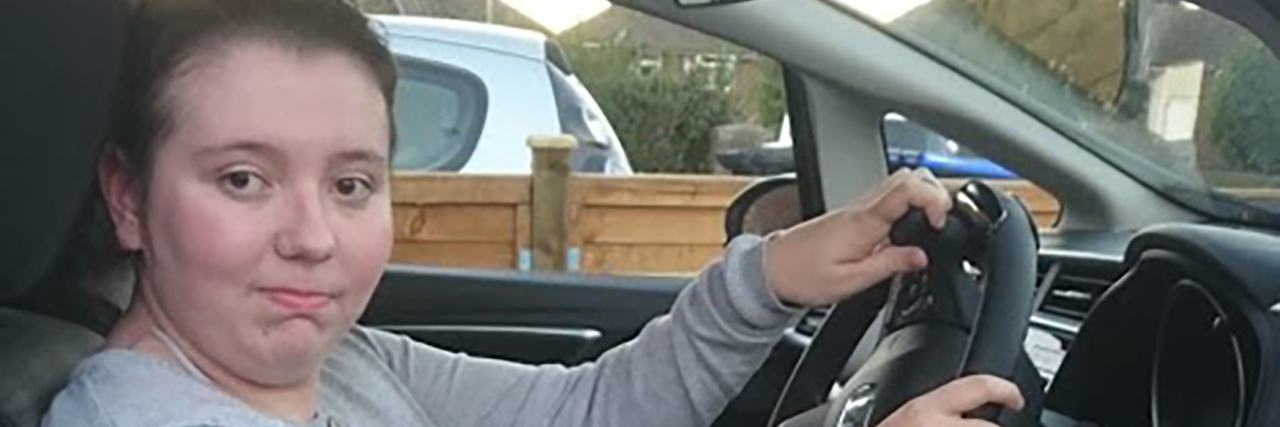I use an electric wheelchair every day at sixth-form because I have triplegic cerebral palsy and can only walk short distances using crutches. Sometimes I catch peers or teachers giving me pitying glances as I weave through the hallways. They probably imagine the difficulty I might have had getting there or think about how “awful” it must be to have to rely on a wheelchair. The truth is I get a straightforward journey in a taxi to sixth-form, and my wheelchair enables my independence. Sadly, I think some close friends are afraid to tell me about their heartbreak or friendship issues because of my disability and the problems it can cause for me. Although that is true, it does not make their more common problems any less valid or difficult. I want my friends to be able to come for me for support if they need it.
Regardless of my stiff muscles and regular physiotherapy sessions, I’m just an introverted teenager who enjoys watching Netflix, decoding Marvel fan theories, reading to escape the real world and writing to feel heard in the real world. I have experienced ableist discrimination in the past from adults and teenagers who might have been ignorant or simply rude. However, the biggest challenges I have encountered this year are the same ones most teenagers go through, and generally have little to do with my disability. Overall, new typical teenage experiences are only daunting because I have never faced them before, not because I have to face them with a disability.
In March, I was dumped for the first time and spent a few sleepless nights watching “Friends” in an attempt to distract myself from analyzing every hurtful word he said. He did not dump me because of my disability, he dumped me because he resented that I suddenly had less time for him due to my studies.
The months of self-doubt that followed were hidden by GCSE exam stress and lots of revision notes. Yet an overwhelming fear consumed me that no matter how much I studied, it just would not be enough — something I know thousands of other students felt across the U.K. When the time came I focused, planned my answers and used my extra time effectively. I was relieved when it was over, but scared of being disappointed with the results of my hard work. Thankfully the hard work paid off.
Recently I have started driving lessons in an adapted car. The thought of someday driving on my own both terrifies and excites me, although it will simultaneously increase my personal independence and responsibility, helping me thrive. I suppose it is normal for young drivers to feel conflicted about the prospect of driving. However, it is a bit more intimidating when learning to drive has the ability to completely change your life once you have adapted to the foreign process of it.
Having a disability since birth comes with more challenges and the need for extra support such as help getting dressed and doing my hair. However, accepting support from others is simple because I am very aware that I need it to be able to complete some basic daily activities, such as pulling back my wavy hair into a ponytail. It’s just a part of my life, whereas having my heart broken was devastating because I had not learned to cope with the raw, heavy feeling of despair before. I was just a teenager trying to get over him. I am just a teenager trying to do well in school. I will be an adult who will reminisce, knowing I eventually got through the struggles of adolescence like everyone else.

